Does your school care about your ADHD? As it turns out, it might not. While 86 percent of colleges enroll students with learning disabilities, only 24 percent of them say they can actually help those students “to a major extent.” I may be bad at math, but I’m pretty sure those numbers are off. Some colleges and universities have set out to set those numbers straight. These 10 colleges are leading the charge.
Check out the 10 best colleges for students with learning disabilities.
10. MARIST COLLEGE
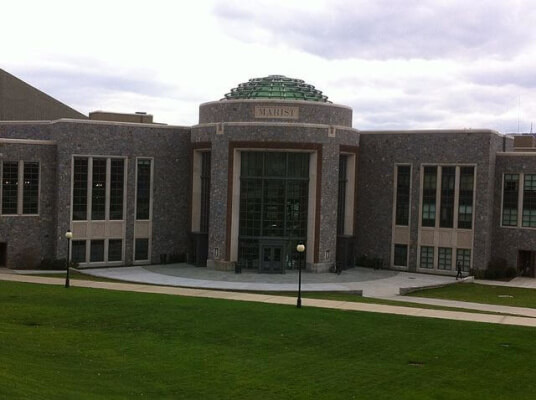
Marist College in New York offers a program that helps students academically, but also teaches them how to advocate for themselves and their disabilities. They provide students with a learning disability specialist who gives guidance on college life and all those awkward social changes that come with freshman year. Students even get to join in on events that raise awareness about disabilities including this year’s developmental basketball clinic, a fundraiser for the center. If you make real waves in raising awareness, you get a certificate and a luncheon in your honor. They’re not messing around at Marist.
9. UNIVERSITY OF CONNECTICUT
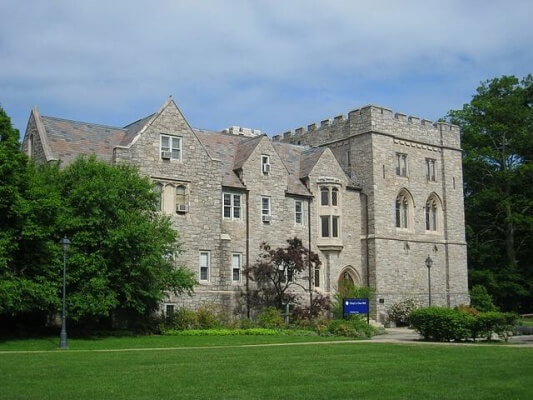
UConn’s Center for Students with Disabilities sets out to ensure that students with disabilities have the “same access to programs, opportunities and activities as all others.” Taking a holistic approach to disabilities tutoring, CSD offers a wide range of subjects, from study skills to networking to how to best use technology for studying. The entire world could use a course in that last one. It might have helped that time I had to retake that Harry Potter Sporcle quiz three times until I got Hermione, but still didn’t know what mitosis was for my bio quiz the next day.
8. LYNN UNIVERSITY

Lynn University in Florida recognizes that learning disabilities are not elastic waistbands: one size does not fit all. They base their mission on the fact that all students have their own strengths and weaknesses, and their program works to help students discover those for themselves. They give students independence early on. Keep in mind that of 67 percent of students who pursue a degree after high school, only 24 percent of them disclose their disability with the university. Self-advocacy and independence is the first step towards success in the world outside school, and Lynn University totally gets it. They offer one-on-one tutoring, coaching and a testing center. Although “testing center” sounds like a personal hell, it’s actually paradise for students who need help with tests. Instead of cherubs and harps they just get… readers or scribes. Still good though.
7. NORTHEASTERN UNIVERSITY

Northeastern’s applications and interviews make its Learning Disabilities Program a bit more selective than most. But the lucky 45 students who make it through the gauntlet gain access to incredible resources: biweekly meetings with an LDP specialist to help with academic struggles like test-taking strategies and time management. They offer support with life skills like setting reasonable goals and monitoring student’s progress. The specialist even works with the student on maintaining motivation and moving past those challenges. With your very own cheerleader and coach on your side, success is inevitable.
6. AMERICAN UNIVERSITY

Transitioning from high school to college is tough: We all remember that awkward first week in the Big Leagues when you have to get up five minutes into your first class after realizing you’re in the wrong room. To help avoid that nightmare, American University offers its Learning Services Program to smooth out the change for freshmen with learning disabilities. These services include an upperclassman LSP mentor for the social side of things. Rounding out the academic side, LSP mentors hold weekly meetings with a writing mentor and assistive technology and students even have a specialized writing class. “The program is designed for first-year students who have language-based learning disabilities and is designed to give these students the extra support they need,” said Deborah Demille-Wagman, Director of Academic and Disability Support. But after the year’s over, they don’t just throw them to the sophomoric wolves; the Academic Support and Access Center steps in for upperclassmen with learning accommodations, offering a study skills workshop and ASAC counselors. On top of that, they help students tame the scariest beast of all: connecting with employers and internships. “American University is committed to supporting a diverse student population, including those with disabilities,” said Demille-Wagman.
5. UNIVERSITY OF IOWA
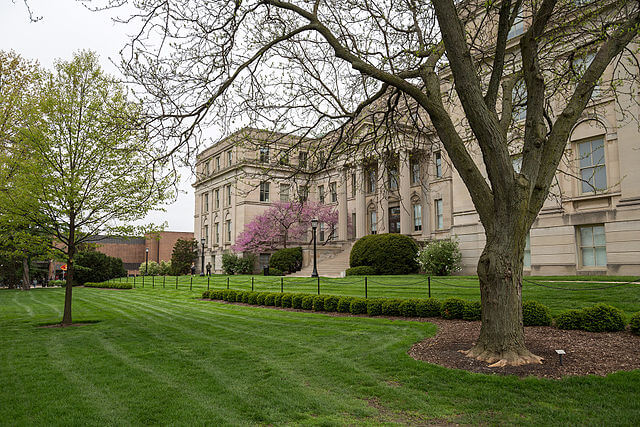
The University of Iowa offers the Realizing Educational and Career Hopes program–or REACH–to assist in everything from campus life to academics to career advice. REACH specializes in helping students who are coming from special education. “REACH fulfills the special needs of special people,” said Dr. Pamela Ries, Director of the program. And she understands how unique students’ experiences can be. “We help students become as independent as they can become, which means different things for different students.” Their students in the REACH program all live in the same dorm–where traditional students live as well–and receive extra support for trained RAs. Students in the REACH program are also provided with opportunities to complete internships in the community, and a “same-age peer” that can help introduce them into groups on campus. Students even create a portfolio of work about their transition into college. It’s no wonder they call it REACH–students can actually reach their goals.
4. CURRY COLLEGE
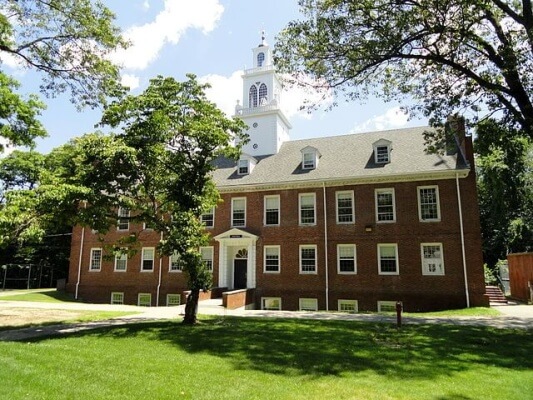
With a student to faculty ration of only 11:1, no student goes without an individual support system tailored to his or her learning style. Those with language-based learning disabilities can turn to Curry’s Program for Advancement of Learning (PAL) for courses in skills that’ll help them in their other classes. These can range from identifying what learning strategies work for them, to more complex skills like how to communicate better and strengthen relationships with those around them. Students in the program meet with their own learning specialist, one of the professors, for 2.5 hours each week. “These faculty members devote careers to the research, theory, and practice of supporting students with learning disabilities and attention deficit,” said Laura Vanderberg, Director of PAL. The program also offers workshops and online programs. The program works on the strategies for learning but to also know when strategies will actually help, or when other methods need to be used, Vanderberg said. PAL also offers a summer program for entering freshmen that includes trips to areas around Boston. You get to learn more and explore.
3. UNIVERSITY OF ARIZONA, TUCSON
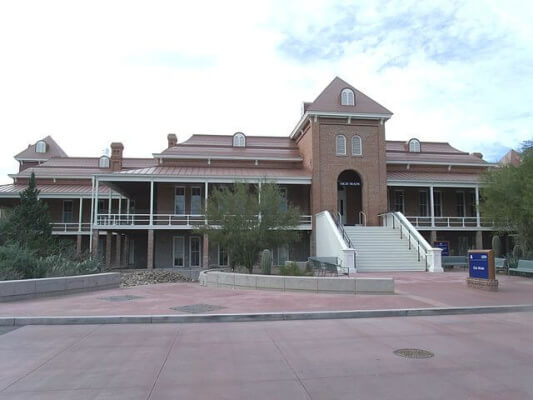
The University of Arizona has the widely acclaimed Strategic Alternative Learning Techniques center. They provide support across the spectrum, from tutors to top-of-the-line technology to in-house psychological counseling. They also provide a Strategic Learning Specialist who creates a learning plan for each student individually. Part of what makes the SALT center so impressive is their expansive set-up. Their Life and ADHD counseling can help students who aren’t even in the area. Their coaches work with students all over the country and even the world via phone and email. “We give direct support to the enhancement of learning. Our mission is above and beyond requirements,” said Rudy Molina Jr., Director of the SALT center. “We built a culture of acceptance and we have many years behind us.” Life coaches–academic ones as well–work with college students on skills like keeping a balanced diet and studying at optimal hours. They help high school students work on building maturity, which proves that these people aren’t just education professionals–they actually care about their students.
2. BEACON COLLEGE
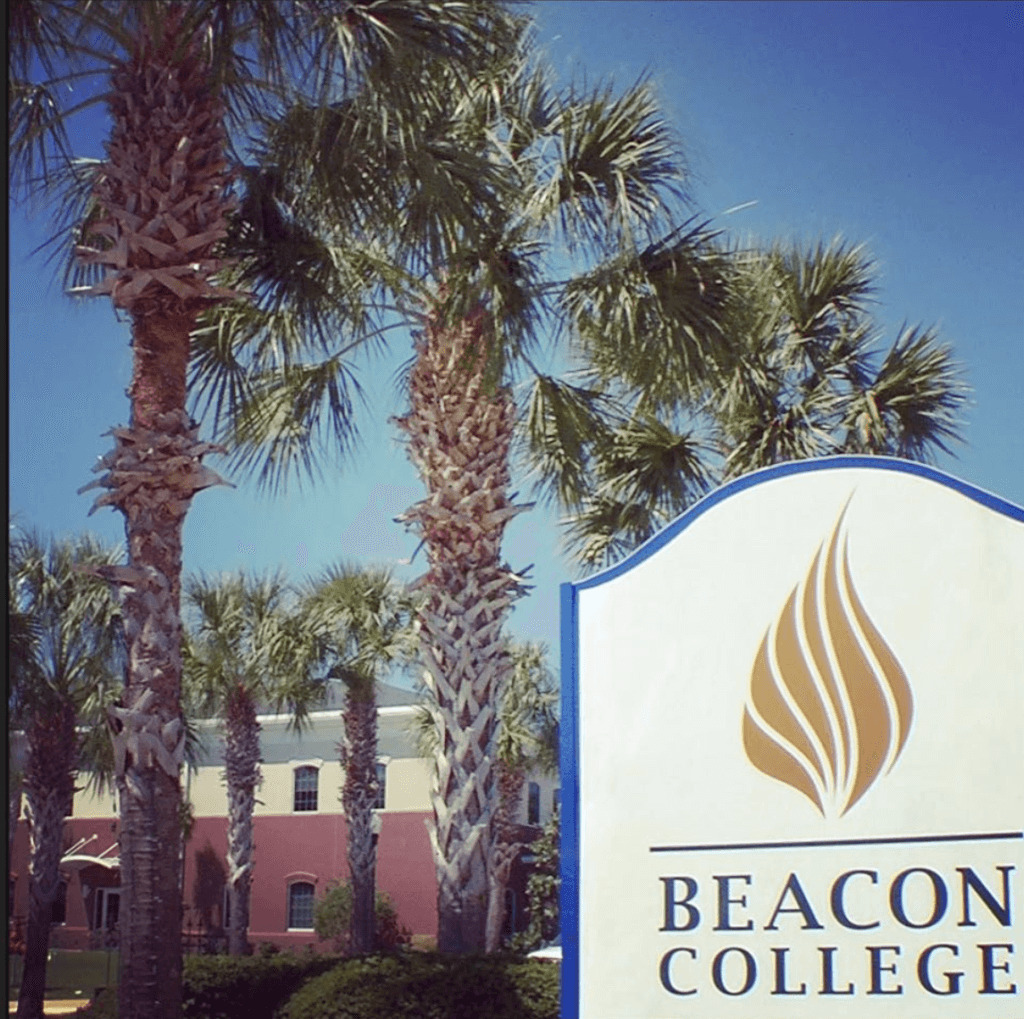
Beacon College in Florida’s attentiveness to students’ needs creates an environment particularly accommodating for students with learning disabilities. You’ll never find a class larger than 15 people, and the administration provides one-on-one coaching and printed lecture notes. Students live on campus and participate in community bonding activities, but they are also assigned life coaches to provide support on more than just academic matters. “Beacon College belongs on the list because the school is the first accredited higher education institution to award bachelor’s degrees exclusively to students with learning disabilities, ADHD, and autism spectrum disorders, and not only provides built-in support to backstop students’ effort to achieve their scholastic goals, but also, in this age of increasing accountability, delivers results,” said Darryl Owens, Beacon’s Director of Communications. “According the U.S. Department of Education, 83 percent of Beacon students graduate and 83 percent earn jobs or pursue post-graduate work. Difficult to argue with those outcomes,” Owens said.
1. LANDMARK COLLEGE
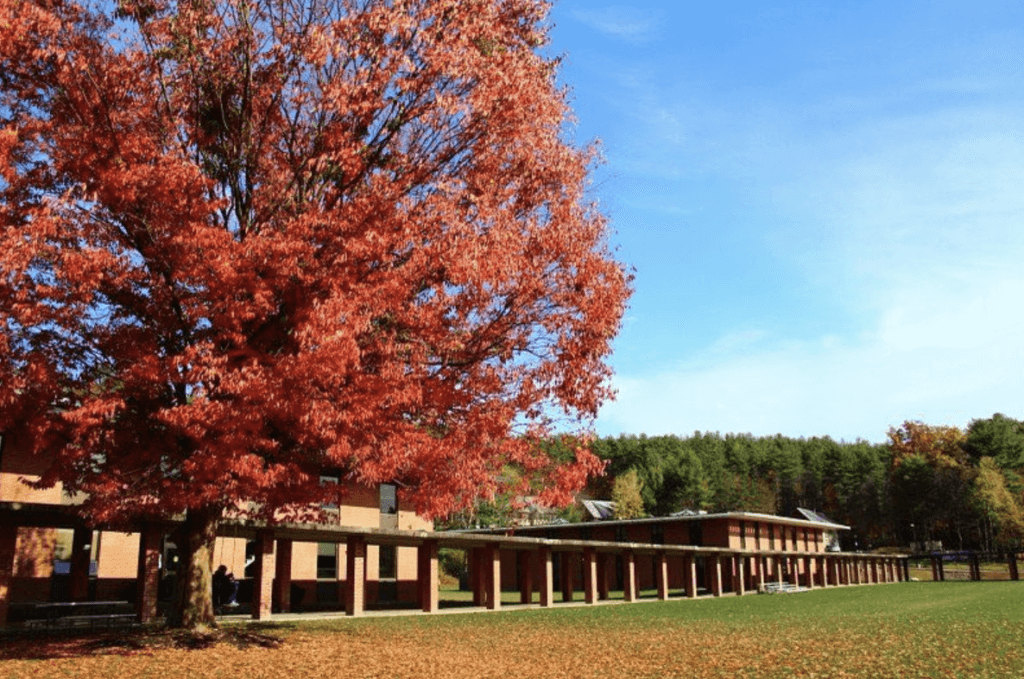
The founders of Vermont’s Landmark College designed their institution specifically for students with learning disabilities. One of Landmark’s catchphrases is “We learn differently.” Administrators recognize this, so professors teach differently. One small example is the act of passing out squeeze balls before class to help students focus. “Landmark College holds a unique space in the arena of postsecondary education. You feel it the minute you set foot on campus,” said Manju Banerjee, Vice President and Director of the Landmark College Institute for Research and Training. “Really, what makes this place different are the relationships between people that create a space where students once again discover what it means to want to learn.” This is an environment where the stigma of learning disabilities is severely lessened: 40 percent of learning-disabled students successfully complete post-secondary programs, and 80 percent of students graduating from Landmark’s two-year program go on to get a bachelor’s degree. Keep up the incredible impact, Landmark.
For more college rankings, check out:
Top 10 Schools for Aspiring Writers
Top 10 Colleges for Outdoor Enthusiasts
Read More about what it’s like to have a learning disability in college.
Only a liar would tell you that getting through college comes easy. Now imagine throwing a learning disability into the mix. Students already struggle to balance classes, work, internships and social lives with hopes of graduating with a fulltime job. Having a learning disability can make #CollegeLife even more stressful. “Having a diagnosed learning disability is not a get out of jail free. They have to work hard just like anybody else and in many cases, it’s harder,” said Vanessa Dash, the student services coordinator at Temple University’s Disability Resources and Services Office.
Access to resources for learning disabilities depends on the university, but some students struggle daily to get accommodations they need. “My evaluation had to be processed by [a school] psychiatrist, which took several weeks. After that, I had to meet and be evaluated by one of [my school’s] psychiatrists to determine whether I really needed medication and accommodations. After another few weeks, things were all finally approved,” University of Colorado Boulder sophomore Ceci Donovan said.
Understaffed disability resources offices often deal with long wait times and lack of services. “Many times, it’s a director and a program coordinator doing everything. They’re meeting with students, assessing documentation, creating accommodation letters, administering tests and proctoring exams. It’s a lot, and really a lot for a two-person show. How can they be their most effective selves?” Dash said. Despite the growing number of students with learning disabilities enrolling in universities across the country, not many understand their struggle.
Check out these 10 things to know about what students with learning disabilities need in college.
Written by Laura Smythe
1. Professors Need More Training
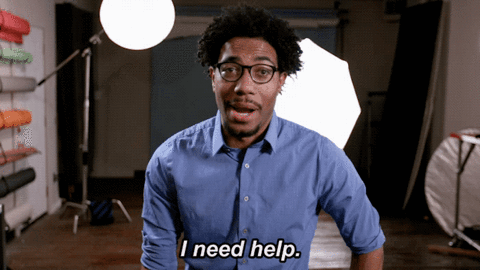
If you ever argued with a professor over a deadline, you know how difficult they can be. But students with learning disabilities often struggle daily with professors who don’t understand their learning processes. Professors should receive ample training explaining learning disabilities and potential accommodations they can arrange for students. “A lack of understanding can be problematic. We get pushback from some faculty members like, ‘They’re just lazy. That’s not fair; why do they get extra time [on tests] and the other kids don’t?’ It’s because the other kids don’t have a disability,” Dash said.
Drawling lectures, distracting classroom settings and forbidding electronic note taking hinder a student with a learning disability from doing well in a course. Not everyone uses their Macbook to surf Facebook during class. “[A professor] tried to remove me from a lecture hall setting because I was taking notes on my laptop, which was ‘strictly forbidden’ in his syllabus. He preferred handwritten notes, but I find it much better for me to have them in digital format,” Temple University junior Zachary Henning said. Publishing lecture slides online after class or allowing laptops fosters an accommodating learning environment.
2. Tutoring Centers Work Wonders
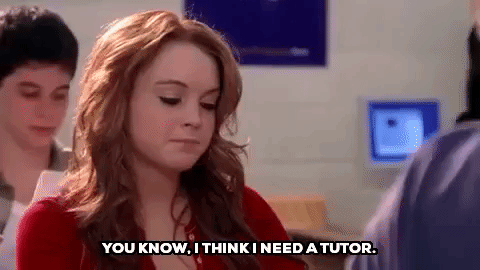
Whether Spanish, math or archaeology class threatens your GPA, we all need help sometimes. Dropping by a tutoring center to check out their integral services can make or break a passing grade for a student with a learning disability. Colleges usually provide on-campus tutors to help with a wide range of subjects. Learn to better navigate your class syllabus or figure out a study schedule that actually works at skill-building workshops.
Still looking for an extra push? See if your school offers academic coaching, a heightened version of tutoring. “[In coaching], students meet with a specific tutor weekly and actually plan strategies. [That] could entail connecting with other resources like [counseling services] or getting involved in student organizations or sports clubs,” Dash said. Coaching comes with a more intimate setting and might also include personal counseling during sessions.
3. Testing Accommodations Don’t Give Students a Leg Up

Hearing about extra time on tests and private testing rooms might have you wondering where to sign up. Not so fast. Coping with a learning disability vastly out shadows receiving exam accommodations. In reality, these necessary resources for students with learning disabilities provide a solid foundation for their achievements. “People joke I’m lucky because I get time and a half on exams. I’m not lucky. It’s incredibly difficult sometimes to finish an exam in the time required,” Henning said.
Universities provide reasonable testing accommodations based on students’ demonstrated medical needs. Mere student preferences don’t impact the process. “[Taking] tests in a separate room doesn’t mean it is an easier test because we can’t handle the other one. Also, having to take breaks isn’t because we don’t have the mental capacity to take the test or do the homework,” TU freshman Blair Strobel said.
4. Students with Learning Disabilities Lead Normal Lives

Does your family often tell you you’re the most progressive one in the room? Before you pride yourself on your forward-thinking, take a look at any misconceptions you have about people with learning disabilities. “I wish people understood that we are not dumb, we just take longer and need extra help,” TU sophomore Karina Murcia said.
Students with learning disabilities look, talk and act just like you and your friends. In fact, many people with learning disabilities display above average intelligence. Learning disabilities don’t hold people back, they just might achieve their goals in a different way. “I am in the Temple University Honors Program and was in Honors and AP classes all throughout high school. People would always be shocked that I was succeeding in those classes…I wish people would know that there is nothing bad about [having a learning disability.] We are completely normal. We just have a slightly different way of operating,” Strobel said.
5. Students Struggle with Adjusting to College Life
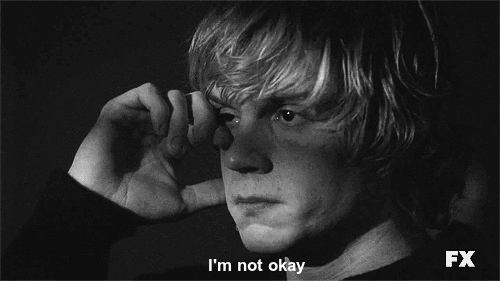
Even the most intelligent students struggle their first year at college. Recall overstuffing your schedule freshman year and showing up eagerly to your first class to have the workload shock you. We all rejoiced when we left the nest and settled into our dorms. But getting used to college life and all the newfound independence can be ten times harder for students with learning disabilities. Heading off to college throws off routines and tests organizational and social skills.
Students must devise strategies to pay attention during long lectures or boring 8 a.m. sessions. Some turn to strategies like sitting in the front row or filling out a detailed planner to increase engagement. “College is a lot more independent than high school, so it’s on me to inform my instructors of my disability and complete work accordingly. I can’t just have my mom send a note. There are a lot of things going on all the time and it is definitely a more distracting environment than high school,” Donovan said.
6. Time Management Helps but Doesn’t Come Easy
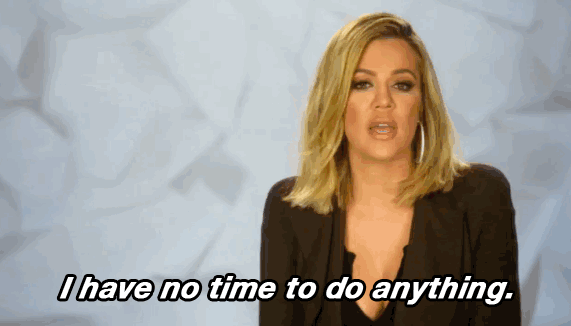
Juggling work, class and friends (and maybe a relationship here and there) can make anyone feel burnt out. Time management trademarks a successful college experience. But having a learning disability like ADHD can make devising a schedule a double-edged sword. Time management becomes imperative in university, but learning disabilities often make it difficult to effectively manage time. Plus, brutal workloads by professors and difficult degree requirements don’t help. “A lot of [the challenge] is maintaining the pace with all the schoolwork, readings and the context of all the readings assignments. For some students, it’s tapping into a range of skillsets from doing presentations, writing papers and reading volumes of chapters for multiple professors,” Dash said.
7. Benefits Come from Sharing Your Experience

Making new friends in college rattles the nerves like the worst case of public speaking jitters. Finding people who understand your learning disability complicates things further. “The most difficult part is trying to find people with the same disability as you or trying to find people that even remotely understand or try to understand,” Georgian College freshman Taylor Grant said.
Thankfully, organizations like Eye to Eye, a mentoring program connecting college students with learning disabilities to middle schoolers with similar disabilities, operate chapters at many universities. Club members bond with others who ride the same boat on the river overflowing with college struggles. “The people I’ve met through Eye to Eye are some of my biggest supports and resources when it comes to my ADHD. I think peer-to-peer advice is a really overlooked resource for learning disabilities and ADHD,” TU sophomore Mara Bloom said. In offering clubs for students with learning disabilities, schools can facilitate a stronger sense of community among students. It also encourages students without learning disabilities to participate in the conversation.
8. Courses Lack Creativity

No one needs more of a challenge staying awake during history class while your 90-year-old professor drones on about ancient French monarchs. Sitting through lecture-only courses feels like rubbing lemon juice on a paper cut. Focusing solely on note taking makes classes creep by, especially when you get in trouble for needing to move around. Offering technological resources like live scribe pens or classes with fewer students let students with learning disabilities better absorb the material. “I have a slower processing speed, so in lectures where the professor just spews information for an hour I have trouble sorting it out and discerning what is actually pertinent. I always end up with a sore hand and pages and pages of useless notes,” Donovan said. This only leads to incomplete assignments because of distractions from potentially hundreds of people.
Instead, professors should come up with creative ways for students to do projects (honestly, this will help us all). “I like to try and take the most hands-on courses I can, especially if it includes a co-op or if a professor allows an assignment to be completed a different way…While doing a marketing course last year we were given real scenarios and told to come up with a solution that we thought would best promote a product. There were no set boundaries like create a poster or write a report [so we could use our] creativity,” GC sophomore Laura Daigle said.
9. Medication Doesn’t Equal Straight A’s

Despite medications like Adderall popping up all over campus during finals week, these pills help some students function every day. Prior to popular belief, stimulants don’t miraculously breed 4.0s. Students with learning disabilities need their prescriptions to function at the same level as everyone else. Doing homework still blows. Those prescribed Adderall or Vyvanse still get distracted from studying by cute cat videos on Facebook or Orange is the New Black binges on Netflix. “My medication doesn’t make me a homework machine! Because I actually need the medication, it doesn’t turn my brain into a machine like it does for people who don’t need it. I get my grades from my own hard work, not thanks to a drug,” Donovan said. People with learning disabilities can’t magically churn out error-free essays round the clock with a dose of medication.
10. Stigmatizing Learning Disabilities Harms Students
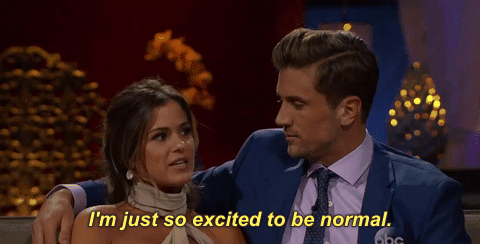
“I always tell students, ‘Get rid of worrying about label and stigma. You don’t have time to focus on that,’” Dash said. Many people misunderstand learning disabilities or regularly invalidate people living with them. Some view learning disabilities as a ploy to get medication or as a “fake” disability. Universities could better benefit students with learning disabilities by spreading awareness through all levels of the college system. Everyone from professors to financial aid services to student advisors should learn to effectively help students with learning disabilities.
“If [universities] wouldn’t treat [learning disabilities] like such a big deal [through the] grueling process to get accommodations recognized, students would feel more comfortable having their disability and accommodations at school. Many people just give up on trying to get schools to recognize their accommodations because [the university] asked for another round of testing for someone who has been diagnosed for years,” Donovan said. Stigmatization only perpetuates the problems students experience.
What It’s Really Like to Go to College with a Learning Disability

1. “One experience that I think really sums up my experience with ADHD in college is when I walked into class the day an assignment was due, sat down and asked the people sitting around me how long the assignment had taken them. Everyone’s response was, ‘About an hour or two.’ I sat there after having pulled an all-nighter and spending 32 hours to finish that same assignment and replied, ‘Yeah, same.’ I feel like I have to constantly remind myself that just because my process is different doesn’t mean it’s wrong. I wish people knew just because I do something different or that a task may take me longer it is not wrong or a reflection of my intelligence. It’s just how I need to do things with how I learn,” TU sophomore Mara Bloom said
2. “Going to college with a learning disability is both frustrating and highly rewarding in a sense…I wish people could see things the way I see everything. I wish I could make dyslexia goggles and let people see the world my way and how I look at everything. It’s a struggle,” Georgian College freshman Taylor Grant said.
3. “Going to college while having [ADHD] is pretty difficult. [I wish people would understand] that something minor that won’t distract and deter someone without the disorder may distract me for quite some time and cause me to lose interest altogether. I want people to know that I’m just like everyone else, I just learn a little differently! Also, it affects temperament. Completely minor things that I shouldn’t get upset over will bother me for days. I’ll get mad over such insignificant things, especially when it comes to completing a task or having to do something repetitively, such as data entry,” GC sophomore Laura Daigle said.
4. “As soon as people find out I have ADHD, the immediate follow-up question is, “So do you have Adderall?” People tend to only see my disability as a way to get a drug…Another difficulty is that friends often want to work on homework together. I love my friends and love to spend time with them, but it’s hard for me to communicate that I simply can’t work with other people. I have to be at home, at my desk, by myself if I have hopes of getting anything done… I take Vyvanse daily and am offered time and a half on assessments as well as a reduced distraction room. However, I often do not take advantage of the latter two because it’s such a hassle for the instructor to reschedule tests and quizzes just so I can take them in a quiet room with extra time,” University of Colorado Boulder sophomore Ceci Donovan said.
5. “[Going to school with a learning disability] is nothing drastically different [than going to school without one]. It is just a bit more difficult to retain a lot of information within the lecture hall setting…I genuinely do not think of it as a disability. Having ADHD certainly makes life a little bit more challenging, but there is absolutely no reason to let that stop you from chasing after your dreams. I’m not the smartest in a classroom environment, but being able to say I’ve held five internships throughout college is a testament to how far one can get when they work hard. I currently work close to full time at my internship within tax consulting while also juggling being the president of a more than 60-person fraternity on top of a full course load,” TU junior Zachary Henning said.
*Updated on March 8, 2018 to include “10 Things to Know…” and 5 Student Experiences by Laura Smythe.



















